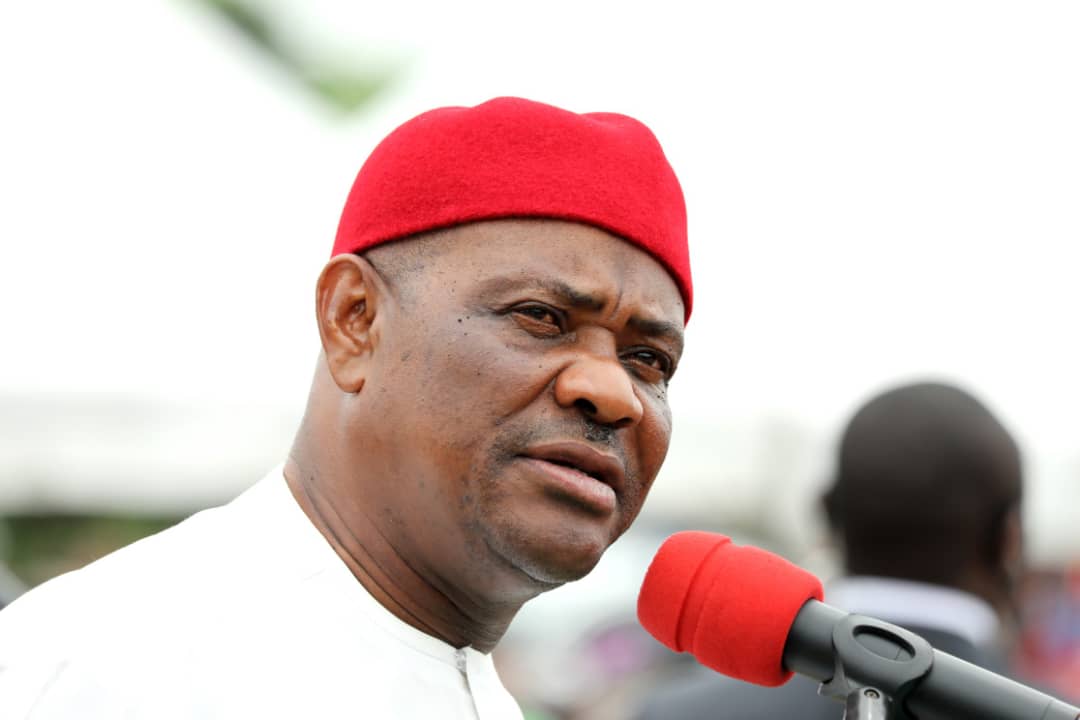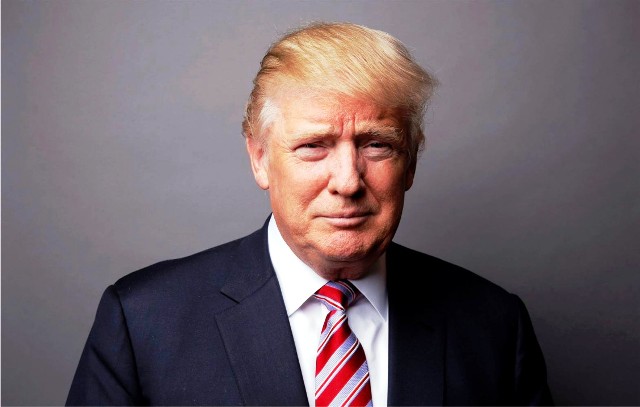Editorial
PTF: Kudos To RSG

For the umpteenth time, Nigeria’s federal structure seems to be on trial following the judgment of a Federal High Court in Abuja restraining the Federal Government from further making deductions from the Federation Account to fund its agencies not listed in the 1999 Constitution for direct allocation.
Delivering judgment in a suit instituted by the Rivers State Government to challenge the unlawful deductions from the Federation Account, Justice Ahmed Mohammed held that Sections 161 and 162 of the 1999 Constitution were glaringly breached by the Federal Government in making a direct allocation to the Police Trust Fund (PTF) from the Federation Account.
Mohammed upheld the case against the unjust deduction and ordered that the fund belonging to Rivers State but used to fund the PTF by the Federal Government be refunded accordingly. The judge, however, declined to extend a similar order of refund to the 35 remaining states because they were not parties in the suit, neither did the Rivers State Government file the matter on their behalf.
Following the milestone ruling, the state government has rightly conveyed its preparedness to halt the Federal Government from further deduction from the said account. It is no longer news that a Federal High Court, last year, in Port Harcourt, at the instance of the Rivers State Government, ruled that states, and not the Federal Inland Revenue Service (FIRS), should be collecting Value Added Tax (VAT) and Personal Income Tax. The matter is currently pending before the Supreme Court.
The judgment on the PTF has further bolstered the agitation against the customary debasement and misapplication of the 1999 Constitution by the Federal Government, contrary to a correlative relationship under federalism. The ruling further emphasises the demand for restructuring of the country based on the principle of federalism. The court had, by the judgment, given its interpretation of Sections 161 and 162 of the Constitution.
Most of all, the said judgment is a big hit with exponents of a restructured Nigeria where true federalism is the telltale sign. It can only be appealed against and upturned or affirmed by a higher court. Since the provisions of the Constitution on the subject are definitive, we urge the Federal Government to effectuate the ruling rather than appeal against it.
Governor Nyesom Wike, who seems to be spearheading a revolution towards the attainment of true federalism, deserves to be hailed for the initiative. Other governors should do likewise and be enthused as the Rivers Chief Executive. Enough of the Federal Government’s double-dealing. Curiously, the same federal authorities that have consistently denied states the right to own a police force, deduct from them to finance an exclusively federal agency. Shame!
Without exaggeration, the Federal High Court judgements on VAT and PTF exemplify Wike’s avidity to reposition the states and country for greater development. It sends across a tocsin of the contingency of true federalism and social restructuring in the country in the near future. It is comparable to convalescing from the Federal Government all jettisoned rights and privileges domiciled in the states. Fortunately, Wike has become the rat that bells the cat.
Surely, we cannot continue to patronise practices that counterbalance our advancement, impair our potentials and make-believe our corporate perceptiveness. It is time to address ordeals in our country extirpating resourcefulness and personal gumption. Nigeria is called a federal system yet unitary in practice. It is time for a constitutional amendment to reflect our appropriate composition.
Given our political configuration, state and local governments are positioned to compete in terms of vision and idea engendering, creation of a sanctioning environment for investments, strategic resource management, human capital and infrastructural development, politics, and best electoral practices, leading to the greater exhilaration of the people. Therefore, Nigerians must nudge from their insentience and clutch true federalism.
Now that the Rivers State governor has exposed other governors and indeed Nigerians to the illegalities of the VAT and PTF deductions, let the state governments and relevant stakeholders, regardless of party allegiance; hound the matters to their logical conclusion. Surprisingly, the state governors are reticent on the issues Wike challenges in court.
Despite the enormous monies ostensibly domiciled in the PTF, the question of parsimonious funds for training and other operational exigencies remains a major challenge for the police, raising the crucial question of corruption in the administration of the funds. Recently, rights activist and lawyer, Femi Falana, SAN, called for an examen into the funds deducted from the Federation Account and remitted to the PTF which he said had not been utilised to equip and train the police.
On the stated reason of lack of funds, citizens are daily extorted by police officers while carrying out their basic duties. A myriad of ordinary Nigerians struggling to make ends meet as drivers, traders, or shopkeepers are crossed by armed police officers, who request bribes and commit human rights abuses against them. Those who decline to compromise are again and again threatened with arrest and physical harm. Far too often, these threats are carried out.
We denounce vehemently the role of the members of the National Assembly who, though are constitutionally commissioned to enact laws, went far beyond their powers in legislating the Police Trust Fund Act by contravening the obvious provisions of the Constitution. It is incumbent upon the Revenue Mobilisation and Fiscal Commission, the Offices of the Accountant-General, and the Attorney General, who were principal parties in the case, to prevail on Mr President to heed the judgment.
Editorial
New Federal Varsity In Ogoni

President Bola Ahmed Tinubu has made history by signing into law a bill that establishes the Federal Univer-
sity of Environment and Technology in Ogoni, Rivers State. This significant occasion marks a bold step forward not only for the Ogoni people but also for the Niger Delta region and Nigeria as a whole. It signifies a commitment to education, environmental sustainability, and technological advancement.
For the Ogonis, who have long been impacted by environmental challenges, the university represents a beacon of hope. It is more than just bricks and mortar; it is a symbol of empowerment and a pathway to a brighter future. This development is akin to a seed, planted with the promise of a flourishing harvest of skilled professionals.
The university’s emphasis on environmental technology is extremely important, especially given Nigeria’s climate crisis. Education plays a crucial role in developing sustainable solutions. The institution will provide students with the necessary skills and knowledge to address the environmental challenges affecting the Niger Delta region and beyond. This will have a momentous impact.
Signing the bill, the President praised the Ogoni people’s resilience and unity. He stressed that the institution would mark a “significant milestone in our national journey towards environment justice, education and sustainable development”. Tinubu said the university is a reaffirmation of his administration’s “unwavering commitment to the people of Ogoni, the Niger Delta and the nation as a whole. For decades, the Ogoni people have been at the forefront of fight for environmental restoration and sustainable development, shaping both national and global conversation of these critical issues.
“By signing this bill into law, we are taking a decisive step towards addressing historical grievances and creating new opportunities for learning, growth and prosperity. The university will serve as a centre of excellence, equipping young Nigerians with the knowledge and skill to tackle present environmental challenges, drive clean energy solutions and contribute to our national sustainable economic development.”
We commend President Tinubu for his visionary decision to establish the much-needed institution aimed at fostering development and progress. This initiative is a testament to his commitment to addressing critical social and economic knots and creating opportunities that will benefit the people. The President has laid a solid foundation for sustainable growth while demonstrating a genuine desire to empower and advance the nation’s collective interests.
In addition to his commendable action, we applaud Tinubu for initiating peace talks to bring stability and reconciliation to the troubled area. The decision to engage in constructive dialogue demonstrates a deep understanding of the relevance of inclusive governance and the role of peace in fostering meaningful development. For decades, Ogoni has endured turmoil and neglect, impeding its potential and the return of oil exploration activities.
By opening the door to peaceful negotiations, the President has made a bold and necessary move towards healing fractured relationships and fostering trust among stakeholders. This initiative holds the promise of ensuring that the voices and needs of the Ogonis are heard and respected. We urge all parties involved to seize this golden opportunity for lasting peace and progress. It is only through unity and mutual respect that the full potential of Ogoni, and by extension the nation, can be realised.
As steps are taken to acknowledge and remediate the damage caused by years of oil exploration and production, the Ogonis must reciprocate Mr. President’s gesture by fostering a climate of equanimity and stability. This will ultimately pave the way for the resumption of oil exploration and production. This is not a call to forget the past, but a pragmatic recognition that meaningful change and sustainable development require a collaborative approach.
The Federal Government has a responsibility to ensure that all academic disciplines offered by the new university are fully accredited to maintain the integrity and quality of the school. Without proper accreditation, the institution risks producing graduates who are ill-equipped to compete in the global workforce or contribute substantially to national development. Accreditation serves as a benchmark that ensures programmes meet academic standards and adhere to best practices across various fields of study.
Staff recruitment should be conducted carefully, as the individuals brought into a team can greatly influence an organisation’s performance, culture, and long-term success. The primary focus of recruitment efforts at the university should be on attracting the best candidates who possess the necessary skills, qualifications, experience, and values. Merit should be the guiding principle in decision-making throughout the hiring process, rather than favouritism or personal bias.
For a nation to thrive in the 21st century, a strong higher education system is not only desirable, but essential. Universities serve as the catalysts for innovation, the breeding grounds for future leaders, and the foundations of a knowledge-based economy. The Federal Government must acknowledge this vital role and take intentional actions to properly fund the university in Ogoni and develop infrastructure to ensure it meets international standards. Neglecting this responsibility would put its future prosperity and global competitiveness at risk.
This institution must not suffer the same fate as other federally-owned universities that have been left to decay. That will be a disservice to its purpose and potential. Many government-owned universities in the country have struggled with dilapidated infrastructure, underfunding, insufficient staffing, and interruptions caused by industrial actions due to unpaid wages or poor working conditions. These challenges have led to declining standards in education, putting both students and staff at a disadvantage. The Ogoni University must not be another victim of this worrying trend.
Editorial
HIV, Transiting From Donor Dependence

The initial announcement by United States President, Donald Trump, to cut funding for international
HIV/AIDS initiatives sent shockwaves through the global health community. In Nigeria, a country facing a significant HIV/AIDS burden, the potential consequences were dire. However, the subsequent waiver granted by the administration has provided a lifeline for the millions of Nigerians who rely on the President’s Emergency Plan for AIDS Relief (PEPFAR) for their treatment and support.
PEPFAR has been an important partner in Nigeria’s fight against HIV/AIDS. Since its inception in 2003, PEPFAR has committed more than $7.8 billion to the country, catering to approximately 90 per cent of HIV treatment requirements. With this funding, Nigeria has been able to enhance its HIV prevention, treatment and support services and has witnessed a reduction in HIV/AIDS deaths.
The waiver granted by the Trump administration guarantees that PEPFAR’s life-saving medicines and medical services will continue to reach the needy. Antiretrovirals (ARVs) are the most common type of medicine used to treat HIV and reduce the virus’ spread. Through the provision of ARVs, PEPFAR helps prevent the spread of HIV and enhances the quality of life of those with the condition.
Although Nigeria was recently exempted from the requirement, the signs are evident: the country has to graduate from dependence on donor funds for its HIV/AIDS control programmes. Over the years, partners including the U.S. government have been central to the provision of treatment to people living with the virus. However, it is time for Nigeria to own its national response to HIV/AIDS.
Nigeria’s HIV/AIDS burden remains critical, accounting for 10 per cent of the global total. In 2023 alone, there were 75,000 new infections and 45,000 HIV-related deaths. The battle against Mother-to-Child Transmission remains challenging, with only 35 per cent of the target 75 per cent being met. Nearly 1.7 million Nigerian children have been orphaned due to HIV. Vulnerable populations, especially women and children, continue to disproportionately suffer.
To transition away from donor dependence, a multifaceted approach is necessary. Firstly, the country must increase its domestic financing for HIV/AIDS programmes. This can be accomplished through innovative funding mechanisms, such as leveraging public-private partnerships and exploring local revenue sources. Secondly, the government needs to strengthen its healthcare system to ensure equitable access to testing, treatment, and care. This involves expanding access to antiretroviral drugs, investing in community-based models, and addressing the stigma associated with HIV.
Thirdly, Nigeria must prioritise prevention efforts. This entails promoting condom use, providing comprehensive sexual education, and increasing awareness about the risks and modes of transmission. By focusing on prevention, the country can decrease the incidence of HIV infections and ultimately lessen the burden on its healthcare system.
Finally, Nigeria should develop a sustainable human resource strategy for its HIV/AIDS response. This involves training and equipping healthcare workers, engaging community volunteers, and empowering people living with HIV to advocate for their rights. A well-trained workforce is essential for delivering high-quality services and ensuring the long-term success of the response.
The transition beyond donor dependence is a complex but necessary journey for the country. By increasing domestic financing, strengthening healthcare systems, prioritising prevention, and investing in its human resources, the country can create a sustainable and effective response to HIV/AIDS. Also, the government should consider alternative funding mechanisms, such as increased domestic funding, public-private partnerships, and philanthropic initiatives. The time to act is now, for the well-being of present and future generations.
Nigeria’s National Agency for the Control of AIDS (NACA) has made momentous strides in combating HIV/AIDS, including expanding access to testing, treatment, and education. However, challenges persist, hindering the effectiveness of these efforts.
One major obstacle is limited access to healthcare facilities, particularly in rural areas. This impedes timely diagnosis and treatment, reducing the likelihood of optimal outcomes for those living with HIV. Additionally, stigma surrounding the disease remains a formidable barrier, preventing individuals from seeking testing and care. Inadequate awareness campaigns further contribute to low testing rates and delayed diagnosis.
Addressing these challenges requires concerted action by the government and stakeholders. Allocation of adequate funding is crucial to expand healthcare infrastructure and ensure the availability of essential services. Moreover, targeted interventions to reduce stigma and promote awareness are vital for increasing testing and early detection.
Collaboration between civil society organisations and grassroots movements is also essential for advocating for protection of HIV funding. Advocacy campaigns can mobilise public support and pressure lawmakers to prioritise the fight against HIV/AIDS. By addressing these challenges and ensuring sustainable funding, Nigeria can depend less on donor countries, drastically reduce HIV transmission, and provide the necessary care to those affected by the disease.
Editorial
Israel-Gaza War: Sustaining The Ceasefire

-

 Sports2 days ago
Sports2 days agoEaglesite Football Academy Targets Grassroots Dev
-

 News2 days ago
News2 days agoRelatives Of Deceased Pension Contributors Get N82bn –PenCom
-

 Niger Delta2 days ago
Niger Delta2 days agoPolice Arrest Boy, 13 For Using Gun To Threaten Colleagues
-

 Opinion2 days ago
Opinion2 days agoEFCC’s Alternative Approach Against Cybercrime
-
News2 days ago
NDLEA Busts Drug Kingpins In PH, Lagos As Suspects Excrete 125 Heroin Wraps
-

 Oil & Energy3 days ago
Oil & Energy3 days agoOPEC+Commits To Monitoring Oil Production Adjustment
-

 Business2 days ago
Business2 days agoNigeria, Still Africa’s Largest Economy – World Bank
-

 News2 days ago
News2 days agoSoludo Rebagged FG Rice Shared To APGA Members-APC

